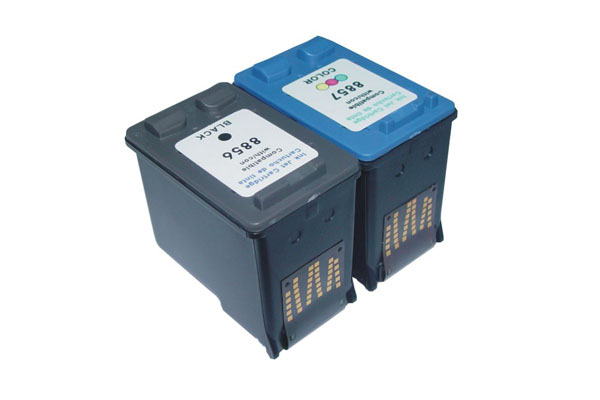I recently decided to upgrade to a wireless printer at home. My previous printer was an HP and I’ve had great success with it, so, I decided to buy another one. I bought it, went through the agony of getting it set up wirelessly and after two hours on the phone with HP support, even got the scanner working. Whew…
Now I’m ready to print with ease. Not so fast….
On three different occasions, I printed items of about 10 pages each and the black printer cartridge ran out. I thought that was odd, so, I called HP to say, “I think I got a defective printer cartridge.” I did not get a defective printer cartridge… Here’s what HP told me…
In today’s personal printer industry, it’s common practice to use starter cartridges. Starter means, you get enough ink in the cartridge to get the machine up and running and then you’re on your own. Is this not a beautiful marketing ploy to generate individual printer cartridge sales? I think I meant to say manipulate…
This was news to me, so, I decided to put this industry standard to the test. I called two of HP’s biggest competitors – Lexmark and Canon.
Lexmark confirmed for me that they use starter cartridges in their personal printers. It took a few minutes to get them to admit it, but, they eventually did with no conditions.
My next phone call was to Canon. Canon said, for their personal printers – the smaller ones – they do not use starter cartridges. However, for their commercial printers – the larger ones – they do use starter cartridges just because of their size.
So, the practice is not an industry standard, but, an individual corporate decision. But, more than the answer to the exact question I put in front of each company is the general reception I faced from each company…
HP and Lexmark were a bit difficult to navigate. Additionally, both companies clearly outsource to the Philippines. I asked. While my conversations with the representatives in the Philippines was in English, it seemed like we were speaking different languages.
Canon on the other hand, routed me directly to a representative in Chesapeake, Virginia, told me the call was going to Chesapeake, Virginia and answered my questions as if we were actually having a conversation. I think this process is very telling…
A company who has little regard for the convenience of their consumers will outsource their support calls to off-shore call centers and sell you a printer with a print cartridge that is only 25% full. This company doesn’t recognizes the statement they make by outsourcing their support calls and manipulating consumers into a continuous buying cycle. This company doesn’t see that as a consumer, if I know a company is attempting to do right by me, I will continue to buy their products. Likewise, if I feel trapped into buying more and more from a company because I have no choice, I’ll be looking for a way out of business with them sooner than later.
Conversely, a company who keeps their support calls stateside and provides full-service at retail understands that consumer loyalty is based on providing 100% service, not manipulation. Canon is the winner in this case and my guess is that in every instance, Canon is going to fair better than both Lexmark and HP.
HP recently announced that they were laying off 8% of their workforce – 27,000 people. So my take-away from this experience: Hewlett-Packard doesn’t appear to care about the consumer or the worker. They appear to be the kind of company that is a bottom-line, profit-driven organization only – economy be damned.
My recommendation – Buy a Canon for your next printer purchase. I know I will…






